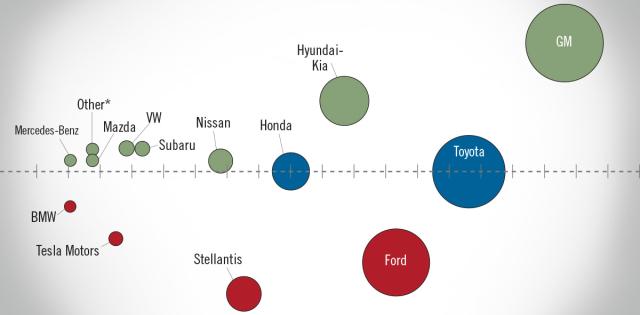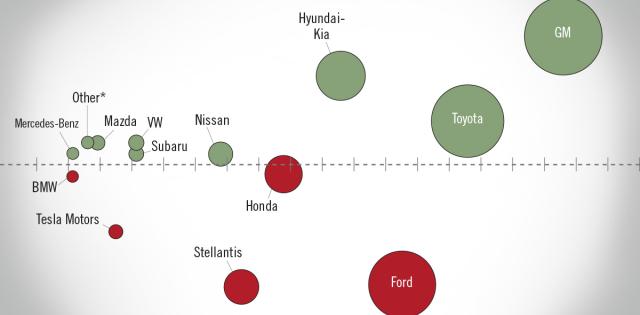The new light-vehicle sales volume in October equated to a SAAR of 16.2 million units, the second straight month with a SAAR above 16 million units. This is down 0.6% from the September SAAR of 16.3 million units. Through the first 10 months of the year, new-vehicle sales are off by 17.5% from the same period last year. Raw sales volume in October totaled 1.345 million units—up about 1% from October 2019. Light trucks continue to be hot sellers, representing 77% of new vehicles sold in October and 76% of new vehicles sold so far this year.
Retail sales are expected to post year-over-year gains for the second straight month, while fleet sales are still weak. According to Wards Intelligence, fleet deliveries in October are likely to be off by 41% compared with October 2019. Fleet activity has been depressed because several major rental car companies canceled large orders early in the COVID-19 pandemic. But this fleet demand may soon increase, as many Americans—currently wary of air travel, public transit and ride sharing—have turned to rental car companies for their travel needs. According to The Wall Street Journal, both Avis and Enterprise have said they plan to resume purchasing new vehicles for their fleets after having downsized earlier this year.
Manufacturers pulled back on incentive spending in October. According to a preliminary estimate from ALG, average incentive spending per unit for the month is expected to be $3,869, up slightly from October 2019 but down a bit from September 2020. Tight inventory on dealer lots has allowed manufacturers to reign in incentive spending in recent months while maintaining strong retail sales at record-high transaction prices. We expect new light-vehicle sales to continue at levels similar to September and October for the remaining two months of the year and for sales to close out 2020 at 14.1 million units.











